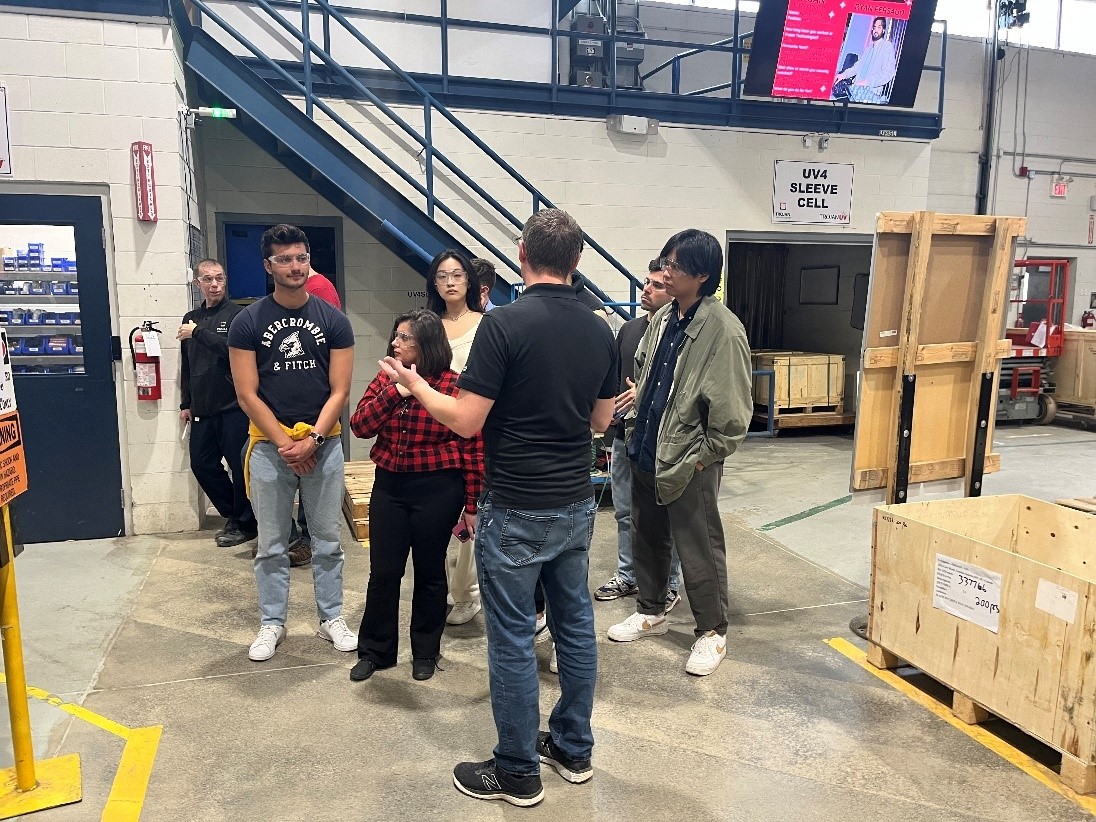CEMS Exchange students at Ivey recently had the opportunity to visit Trojan Technologies as part of their Global Leadership course. In her blog below, Kristen Kovacs, Associate Director of Experiential Learning and CEMS Corporate Relations Manager at Ivey, shares details and learnings for the students.
Here in London, Ontario where clean drinking water is plentiful, it’s difficult to imagine that many people in other parts of the world suffer from diseases carried by contaminated water each year – let alone be part of the solution. But Ivey’s visiting CEMS Masters in International Management exchange students saw firsthand how local businesses are helping to solve the world’s complex problems during a recent visit to Trojan Technologies as part of their Global Leadership course. Trojan Technologies, a company founded in London, specializes in providing international clean water solutions.
During their visit to the facility on March 5, the CEMS students learned about the history of Trojan Technologies, the science behind the company’s solutions, practical applications of the technology, and some of the innovative solutions Trojan Technologies has been able to implement worldwide. Students engaged in a discussion about water solutions that have been used internationally, such as UV treatments for wastewater, drinking water, and the various approaches and regulations that different countries exercise.
Following a presentation from Katrina Williams, Vice President of Innovation & Technology at Trojan Technologies, the students toured Trojan’s production area and observed the creation of many of the technologies the company uses both locally and internationally.
Trojan Technologies serves a variety of markets including municipal wastewater, drinking water, food and beverage manufacturing, and more. Some of its associated brands include TrojanUV, Aquafine, Aria Filtra and VIQUA.
As part of the course, students engaged in both pre-class and post-class activities. This provided them with the opportunity to reflect on their learnings and apply them to their personal contexts, including their country of origin, other places they have lived, and previous work experience.

Viewing the production area



